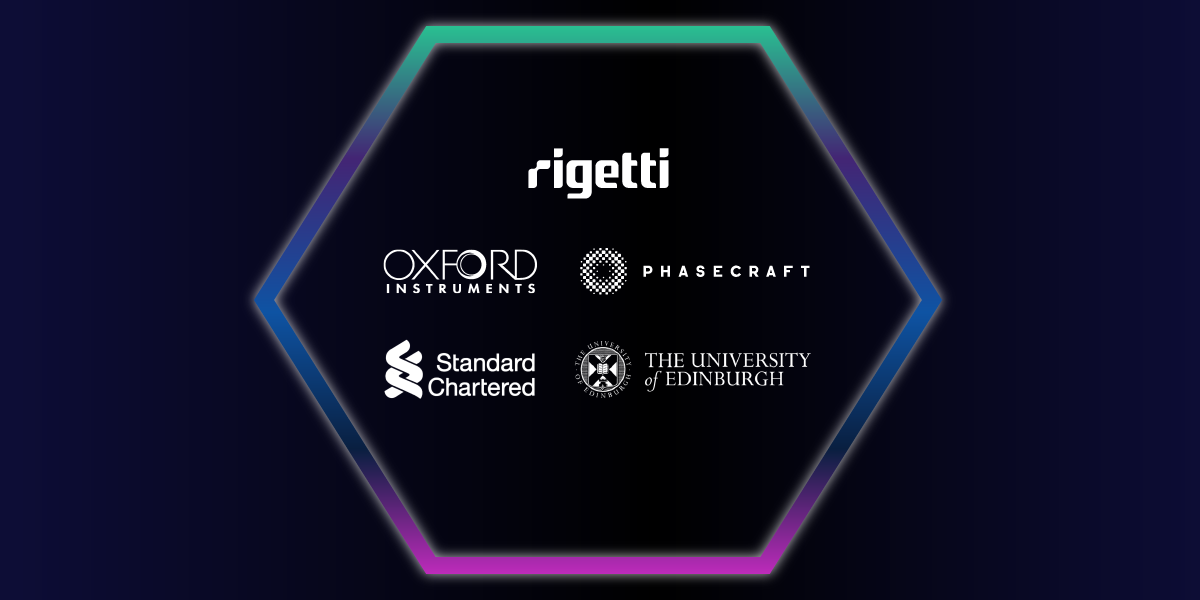Date Announced: 03 Sep 2020

Abingdon, UK -- Oxford Instruments NanoScience has announced it will partner with a £10 million consortium to accelerate the commercialisation of quantum computing in the UK, led by Rigetti Computing. The three-year programme will build and operate the first quantum computer in the UK, make it available over the cloud, and pursue practical applications in machine learning, materials simulation, and finance. The consortium is joined by University of Edinburgh, quantum software start-up Phasecraft, and Standard Chartered.
Oxford Instruments is delighted to be part of such a strong consortium and play a key role in the development of a quantum computer by providing the latest state-of-the-art Proteox dilution refrigerator for this prestigious project.
The company works closely with customers and partners to develop the next generation superconducting and cryogenic solutions for quantum and nanotechnology applications. For quantum technologies, Oxford Instruments offers a wide range of solutions, both for research and commercial exploitation – from the fabrication of qubits to measurement and characterisation, no matter what the customer’s qubit strategy might be.
“Our ambition is to be the world’s first quantum economy, which could provide UK businesses and industries with billions of pounds worth of opportunities,” said Science Minister Amanda Solloway. “Therefore, I am delighted that companies across the country will have access to our first commercial quantum computer, to be based in Abingdon. This is a key part of our plan to build back better using the latest technology, attract the brightest and best talent to the UK and encourage world-leading companies to invest here.”
Many industries central to the UK economy are poised to benefit from quantum computing, including finance, energy, and pharmaceuticals. A recent BCG report projected the global quantum industry to reach £4 billion by 2024.
Rigetti will build the superconducting quantum computer in a Proteox dilution refrigerator provided by Oxford Instruments. The University of Edinburgh will develop new ways of testing quantum hardware and verifying the performance of quantum programs, and will work with Standard Chartered Bank to advance quantum machine learning applications for finance. In addition, Phasecraft will use its deep knowledge of quantum algorithms and high-efficiency quantum software to harness this hardware for near-term applications in materials design, energy, and pharmaceuticals.
In addition to delivering a practical quantum computer in the UK, a key goal of the initiative is to further develop the country’s quantum computing talent, infrastructure, and national supply chain, and to advance the high-performance computing industry.
Cryogenic platform
Oxford Instruments’ new Proteox dilution refrigerator will be used as the cryogenic platform. This next generation cryo-fridge offers enhanced wiring capacity, multi-experiment capability and improved system modularity. A secondary insert allows pre-testing of the quantum device before fitting it to the main fridge. These features will benefit the collaboration by increasing the number of signal lines and speed up future upgrades, allowing offline component assembly and characterisation.
“As we are presently facing a second quantum revolution, quantum technologies are triggering a broad range of diverse applications to address significant global challenges. At this disruptive time in the quantum space, this is a great project to be part of and will help in developing innovative solutions to meet these challenges”, says Simon Holden, Managing Director Oxford Instruments NanoScience.
“I am sure this collaboration will open a new future for many more innovative applications, and these applications will require an ecosystem where skills development, design & engineering excellence, and technology partners all combine to enable new discoveries and solutions”, Simon added.
“We are excited to deliver the UK’s first quantum computer and help accelerate the development of practical algorithms and applications,” said Chad Rigetti, CEO of Rigetti Computing. By providing access to quantum hardware, the collaboration aims to unlock new capabilities within the thriving UK ecosystem of quantum information science researchers, start-ups, and enterprises who have already begun to explore the potential impact of quantum computing.
The consortium is backed by £10 million government and industry investment, including funding from the government’s Quantum Technologies Challenge, led by UK Research & Innovation.
Magnetic Resonance, NanoScience
0.2 mi • Tubney Woods, Abingdon, UK
OX13 5QX
UK
T: +44 (0)1865 393200
F: +44 (0)1865 393333
E-mail: info@oxinst.com
Web Site: https://www.oxinst.com/
| © 2026 SPIE Europe |
|